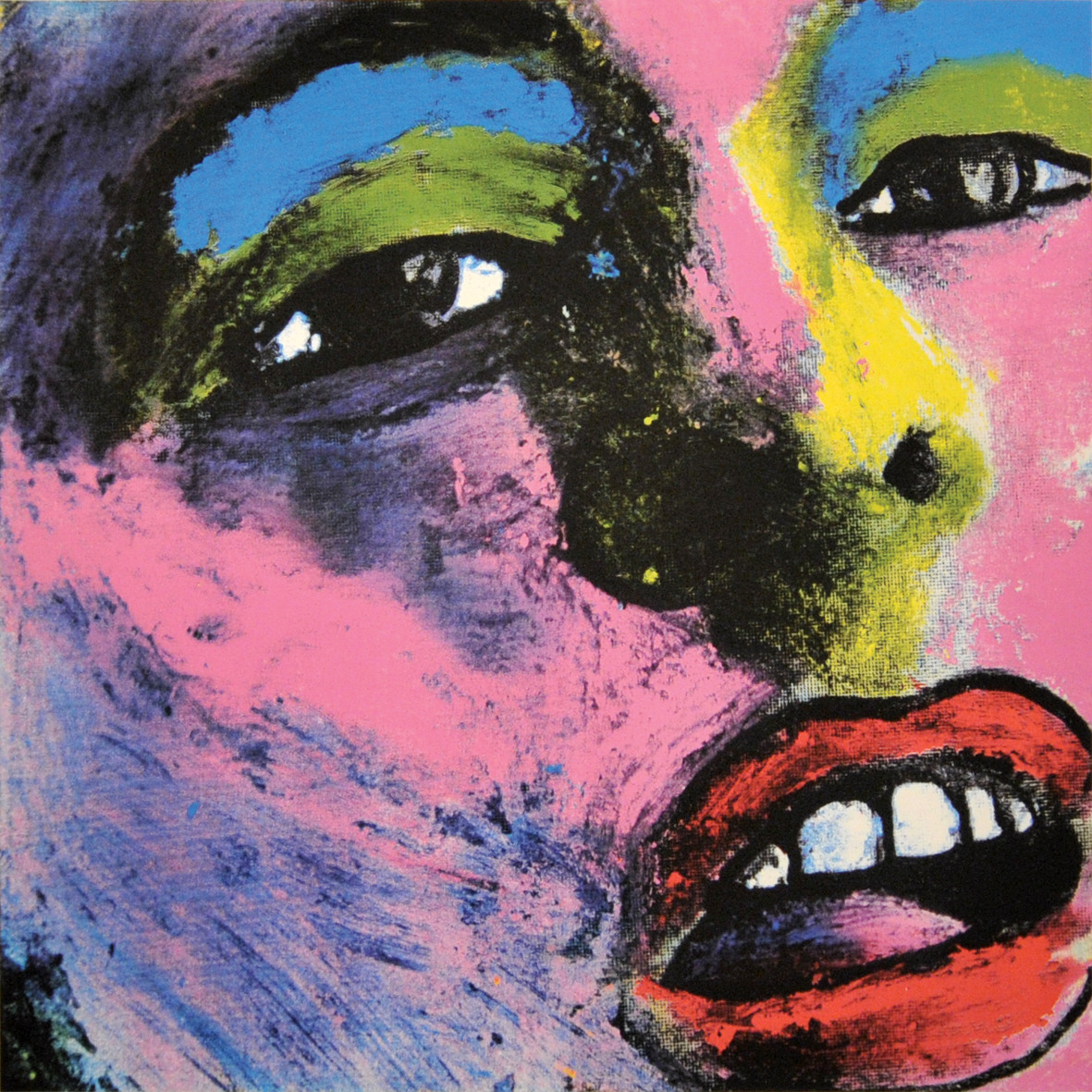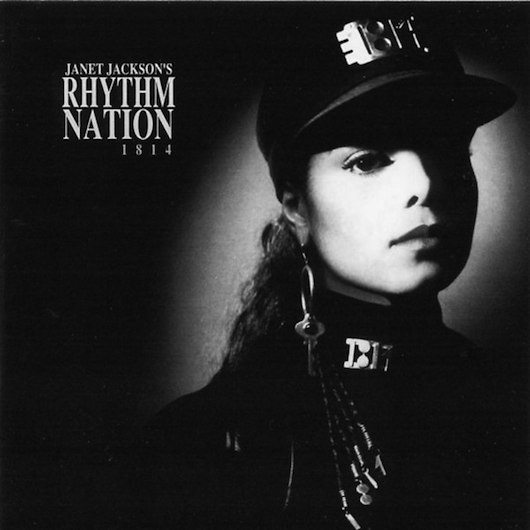1001 Albums You Must Hear Before You Die
Tuesday, March 8, 2016
Happy Mondays - Bummed (1988)
Review:
Happy Mondays deliver an album here that plays like disco for a party that should have ended hours ago. Monotonous and hypnotic, it emphasizes the mindless repetitiveness of its rhythms ("Brain Dead," indeed). This is music that I'd describe as indulgent, as a compliment. The band is credited with doing much to jumpstart the Manchester scene, but this is closer in spirit to Can's groovy experimentation than most Britpop of its era. That's probably to the album's credit, resulting in a decadent, catchy sound that stops just short of being clearly meaningful.
Top Tracks:
The anthemic "Wrote for Luck." The middle finger to The Beatles that is "Lazyitis."
Monday, March 7, 2016
Kate Bush - Hounds of Love (1985)
Review:
Even an her most approachable, Bush will deliver an odd beast of a record. Here, with what was likely her biggest commercial success, she offers one of the last albums that was conceived as an album in the days when a record or cassette had two sides. Hounds' sides A and B are two distinct song suites, linked mainly by their expansive production and Bush's potent voice. Her lyrics are elusive and elemental, at times almost to the point of self-parody, but they match the high stakes of the instrumentation. Sometimes Bush's ambition gets the better of her (interrupting "Hello Earth" for a Gregorian chant is bold, yet not in the best interests of the song), but this is such a generous, expansive work that it's difficult to complain about the few times that the artist overreaches.
Top Tracks:
Not to be clichéd, but "Running Up That Hill (A Deal With God)" and "Cloudbusting" are tops. "The Morning Fog" acts as deliverance for what's come before.
Even an her most approachable, Bush will deliver an odd beast of a record. Here, with what was likely her biggest commercial success, she offers one of the last albums that was conceived as an album in the days when a record or cassette had two sides. Hounds' sides A and B are two distinct song suites, linked mainly by their expansive production and Bush's potent voice. Her lyrics are elusive and elemental, at times almost to the point of self-parody, but they match the high stakes of the instrumentation. Sometimes Bush's ambition gets the better of her (interrupting "Hello Earth" for a Gregorian chant is bold, yet not in the best interests of the song), but this is such a generous, expansive work that it's difficult to complain about the few times that the artist overreaches.
Top Tracks:
Not to be clichéd, but "Running Up That Hill (A Deal With God)" and "Cloudbusting" are tops. "The Morning Fog" acts as deliverance for what's come before.
Steely Dan - Countdown to Ecstasy (1973)
Review:
The second album from Steely Dan finds the band at a transitional moment, with the potential to capitalize on the rollicking success of their first hit single "Reelin' in the Years" yet pushing toward the laid-back jazz-fusion outfit that they would become. As such, this is likely a strange album for any Steely Dan fan, yet it's perhaps a bit more approachable than most of their output for those not heavily acquainted with their work. While several of the jazzier numbers here (e.g. "The Boston Rag") uncomfortably straddle the thin line between sleepy and sophisticated, the overall impression of the album is that it stands as a statement of purpose, showing a large amount of diversity over its eight tracks. The band shreds through numbers like "Bodhisattva," doodles out a few jazzy midtempo tunes, then moves onto the oddball vamp of "Show Biz Kids." It's an album that fails to cohere on a certain level, because it is the work of a band that's embracing possibilities.
Top Tracks:
Dueling guitar solos define the punchy "Bodhisattva." The catchy yet withholding "King of the World" epitomizes the Steely Dan tension between pop songcraft and noodling digressions.
Sunday, March 6, 2016
Drive Like Jehu - Yank Crime (1994)
Review:
It doesn't take a fan of the genre to appreciate the virtuosity of these mutating punk epics. One of only two albums by the band, it's the sort of wholly complete work that suggests there was nowhere else to go after its release. The first half of the album is urgent and expansive, the second considerably more introspective. All of it feels of a tortured piece, somehow.
Top Tracks:
"Luau," ambitious and twisty, even among these gargantuan tunes. "Super Unison," which takes the band somewhere close to plaintive.
Nina Simone - Wild is the Wind (1966)
Review:
Apparently cobbled together from leftover studio and live tracks, this album perhaps inadvertently stands as a testament to Simone's eclecticism. By turns political, swooning, and angry, the setlist demonstrates Simone's manic ability to commit to a mood... and then turn on a dime. The cumulative effect is the feeling that a soul is being bared, in all of its complexity. Because I am a fan of Simone's, largely through compilations, I'm not familiar enough to state where this ranks within her discography. Still, it seems an solid starting point for those looking to enter into her world, even if the album features only one track written by Simone herself.
Top Tracks:
The soaring, sweet "What More Can I Say?" The sobering, one-two punch of the title track and "Black Is the Color of My True Love's Hair."
ZZ Top - Tres Hombres (1973)
Review:
For someone who knows ZZ Top primarily from their synth-heavy '80s MTV days, this is a blusey, rollicking surprise. Like a band that has played a thousand dirty bars too many, ZZ Top flings through this sleazy half hour set without so much as a hitch. The prime example of the band's consummate professionalism is probably the almost imperceptible 4/4 segue between the first two tracks, but throughout the group seems unaffected yet insistent. The album as a whole is perhaps too familiar an exercise in its genre to qualify as great, but it's delivering precisely what it wants and not wasting any time in doing it.
Top Tracks:
"La Grange," which is ubiquitous, but has been anonymous for me until now. The grungy revivalism of "Jesus Just Left Chicago."
Janet Jackson - Rhythm Nation 1814 (1989)
Review:
I've been working through the albums from the book "1001 Albums You Must Hear Before You Die." Some of the the albums on this list are bound to be discoveries, but here's one that I've deeply absorbed into my bones. Sorry, Ms. Jackson, that this is the only entry you've been given on this list (I've always been more of a janet guy myself), but there's no debating its worthiness. Pop music doesn't get much funkier, more urgent or more packed with confidence. From front to back, this is loaded with hits, and even the few comparatively bum tracks (e.g. "Livin' in A World (They Didn't Make)) are purposeful reminders that this is just as much an album as a nearly unparalleled set of singles (8 of them, seven of which hit the top 10). Most of our contemporary pop ingenues struggle in their transition to adulthood. Between the coming of age statement that was Control and the fully-formed ambition represented here, Jackson makes one of the genre's most purposeful and believable transitions. She offers a thin voice that demands to be heard, pushing through Jam and Lewis' commanding production and the vapid cacophony of most pop radio.
Top Tracks:
The swooning, propulsive "Love Will Never Do (Without You)." The gritty, muscular "Black Cat."
Subscribe to:
Posts (Atom)






